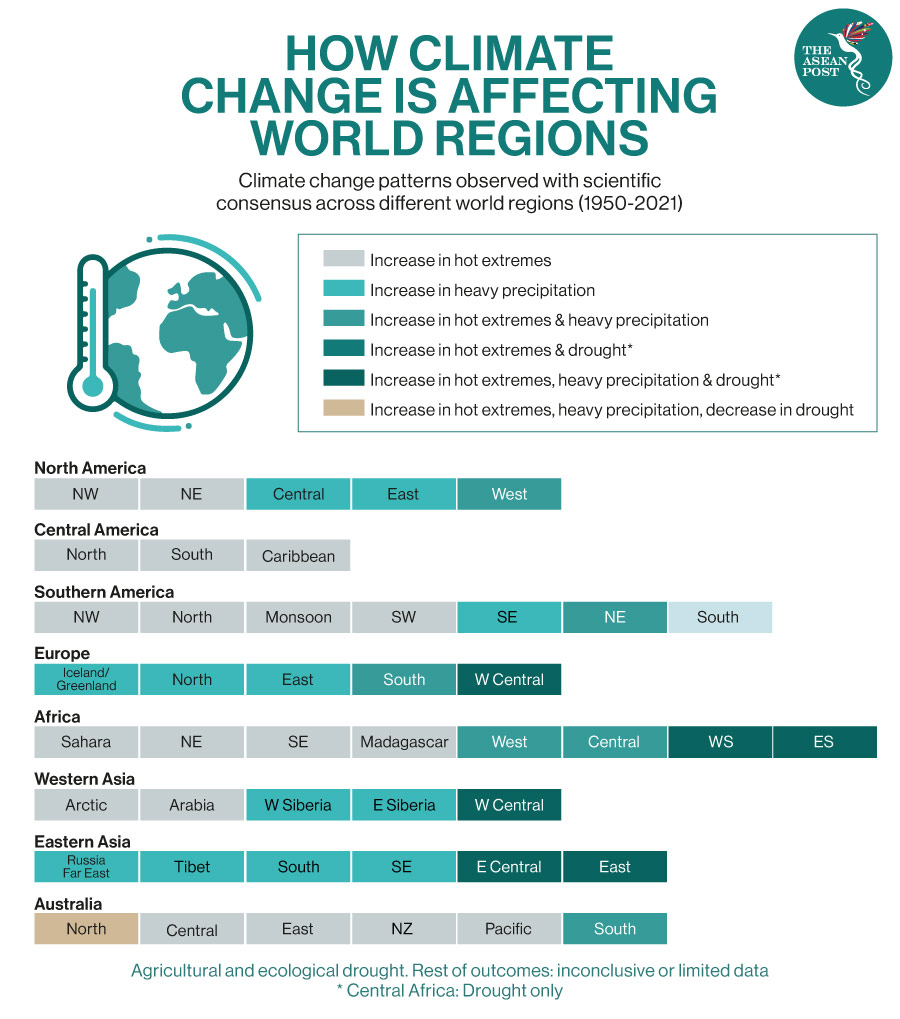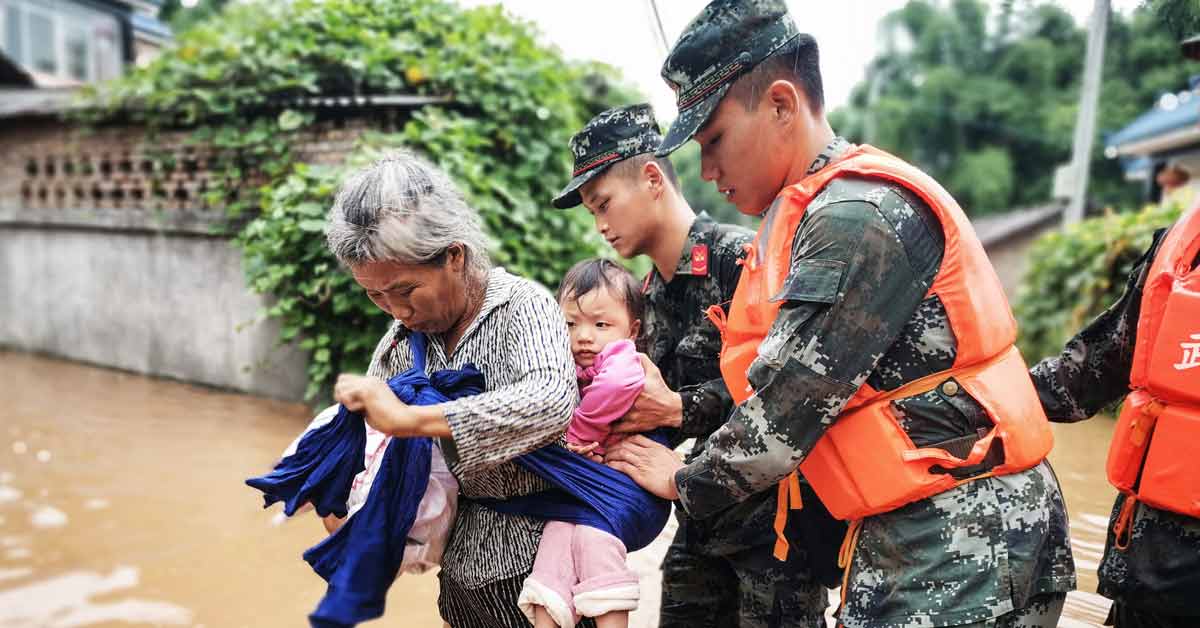Almost half the world’s 2.2 billion children are already at “extremely high risk” from the impacts of the climate crisis and pollution, according to a report from the United Nations International Children's Emergency Fund (UNICEF). The UN agency’s head called the situation “unimaginably dire”.
Nearly every child around the world was at risk from at least one of these impacts today, including heatwaves, floods, cyclones, disease, drought, and air pollution, the report said. But one billion children live in 33 countries facing three or four impacts simultaneously. The countries include India, Nigeria and the Philippines, and much of sub-Saharan Africa.
The report is the first to combine high-resolution maps of climate and environmental impacts with maps of child vulnerability, such as poverty and access to clean water, healthcare and education. “It essentially (shows) the likelihood of a child’s ability to survive climate change,” said Nick Rees, one of the report’s authors.
The report was launched with youth climate activists on the third anniversary of Greta Thunberg’s first school strike, which sparked a global movement. After a pause in public demonstrations during the coronavirus pandemic, a global climate strike is planned for 24 September.
Henrietta Fore, UNICEF executive director, said: “For the first time, (this report gives) a complete picture of where and how children are vulnerable to climate change, and that picture is almost unimaginably dire. Virtually no child’s life will be unaffected.”
“Children are uniquely vulnerable to climate hazards,” she said. “Compared to adults, children require more food and water per unit of body weight and are less able to survive extreme weather events.”
The report calls for the inclusion of young people in all climate negotiations and decisions, including at the UN Cop26 summit in Glasgow in November. “The decisions will define their future,” said Fore. “Children and young people need to be recognised as the rightful heirs of this planet that we all share.”
Thunberg said: “We are not just victims, we are also leading the fight. But (the world) is still not treating the climate crisis like an emergency. We are still just talking and greenwashing things instead of taking real action. But, on the other hand, there have been many millions of people mobilised, especially young people, and that is a very important step in the right direction.”

Nkosilathi Nyathi, a climate activist from Zimbabwe, said: “Climate change is very personal to me.” He said heatwaves and floods had interrupted his schooling and farmers in his village were struggling with unpredictable weather. “I’m passionate about the inclusion of young people in decision-making platforms - young people are the world’s most precious natural resource.”
The UNICEF report said the impacts of the climate crisis were “deeply inequitable” and very likely to get worse. Rees said: “The top 10 countries that are at extremely high risk are only responsible for 0.5 percent of global emissions.”
The report found 920 million children are highly exposed to water scarcity, 820 million to heatwaves, and 600 million to vector-borne diseases such as malaria and dengue fever, which are likely to get worse as suitable climate conditions for mosquitoes and pathogens spread.
“But there is still time to act,” said Fore. “Improving children’s access to essential services can significantly increase their ability to survive these climate hazards. UNICEF urges governments and businesses to listen to children and prioritise actions that protect them from impacts, while accelerating work to dramatically reduce greenhouse gas emissions.”
Mitzi Jonelle Tan, a youth campaigner from the Philippines who also helped launch the report, said: “One of the reasons I’m a climate activist is because I was born into climate change like so many of us have been. I have such vivid memories of doing my homework by the candlelight as typhoons raged outside, wiping out the electricity, and growing up being afraid of drowning in my own bedroom because I would wake up to a flooded room.”
“(Cop26) has to be the one that changes something because we’ve gone for so long having these conferences only coming up with empty promises and vague plans,” she said.
Thunberg said: “We cannot stress enough how big a responsibility the United Kingdom (UK) government has now. But there is a lie that the UK is a climate leader and that they have reduced their CO2 emissions by more than 40 percent since 1990. If you include things like aviation, shipping, outsourcing and imports and the burning of biomass, it doesn’t really look that good - they are very good at creative carbon accounting. We want them to stop talking and start acting.” - The Guardian
